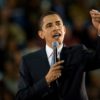 Ahmed El Shamsy is associate professor of Near Eastern languages and civilizations at the University of Chicago. He teaches courses on all aspects of classical Islamic thought, and is an associated faculty member at the Divinity School. He studies the intellectual history of Islam, focusing on the evolution of the classical Islamic disciplines and scholarly culture within their broader historical context. His research addresses themes such as orality and literacy, the history of the book, and the theory and practice of Islamic law. He is the author of The Canonization of Islamic Law: A Social and Intellectual History (Cambridge University Press, 2013).
Ahmed El Shamsy is associate professor of Near Eastern languages and civilizations at the University of Chicago. He teaches courses on all aspects of classical Islamic thought, and is an associated faculty member at the Divinity School. He studies the intellectual history of Islam, focusing on the evolution of the classical Islamic disciplines and scholarly culture within their broader historical context. His research addresses themes such as orality and literacy, the history of the book, and the theory and practice of Islamic law. He is the author of The Canonization of Islamic Law: A Social and Intellectual History (Cambridge University Press, 2013).
How did you become interested in studying the history of classical Islamic law?

In my final year of college at the School of Oriental and African Studies in London, I took two text-based classes that gave me a glimpse of how extensive and sophisticated premodern Islamic legal thought was. I was fascinated, but I knew that I could not get a grip on this vast corpus on my own, so after I graduated I spent a year in Egypt, studying a sixteenth-century legal text the traditional way—one on one with a teacher, reading the text word by word and memorizing chunks of it along the way. The experience really opened up the terminology and way of thinking of a Muslim jurist. It was like I had discovered a mysterious, intricate building, and this year of study allowed me to get a sense of the building’s layout and structure. But I still had no idea how it got there, who built it, and out of what. When I then started to read about the history of Islamic law, I learned much, but few works really told the story of the people who shaped the legal tradition, their social context, and the influence of this context on the tradition that their efforts produced. It was the desire to bring these people and the formation of their ideas to light that propelled me into this field.
How did receiving an IDRF award impact your graduate education? Has it had an impact on your subsequent career in academia?
To write a thorough legal history of the kind that I aspired to write, I could not rely solely on printed literature: only a part of the written corpus of Islamic law has been edited and published to date. I had to delve into the extensive manuscript holdings of libraries in the Middle East and Europe. As a non-US citizen I was ineligible for many of the fellowships that typically fund this kind of work. IDRF not only was open to non-US citizens but also, importantly, allowed me to piece together a unique research itinerary that combined several seemingly unrelated countries. This allowed me to target precisely those collections that housed the manuscripts most valuable for my research. Thanks to this flexibility, my research year overseas was a success: the material I discovered not only formed the backbone of my dissertation but also provided the basis for several separate articles, in some cases written and published years after I finished my PhD. In addition, the contacts I made with scholars around the world during my fellowship year have matured into enduring friendships and fruitful collaborations. Finally, the fellows’ workshop that took place afterwards turned out to be very useful: it forced me to rethink and present my findings in a way that made them accessible to nonspecialists, which helped me to work out what was really significant about them—and what were just narrow philological concerns best relegated to footnotes.

Have you kept in touch with any of the IDRF fellows you met at the post-research workshop?
We stayed in touch as a group for a while afterwards, and I have kept in contact with a couple of the fellows ever since then. It has been great to see the progress of everyone’s projects in the form of new book announcements!
Was there a significant transition for you in going from being a student at Harvard, where your primary focus was on research and writing, to being a professor at the University of Chicago, where your focus is split between teaching and research?
Of course, that was a significant transition. One day I was a graduate student with basically a single job—thinking—and the next I was a teacher and a colleague, with all the additional responsibilities that these roles entail. I have been lucky to have phenomenal colleagues and students, from whom I have learned immensely. But I can’t say I have yet found a stable solution. Balancing my various responsibilities with the need to keep alive the excitement of research and discovery is and will probably always remain a work in progress.
Is there any advice you wish you had gotten in graduate school?
In hindsight, I think I got all the key advice I needed when I was in graduate school—I just didn’t always recognize it as such until afterwards! Venturing out into the scholarly world as an academic adult requires a combination of healthy self-confidence and realistic humility, but those are things that grow with time.
What advice would you give to the incoming 2017 IDRF cohort?
Have a worked-out plan before going out into the field, but be flexible and willing to change it as your research progresses. Cultivate long-term local contacts, and seek out the advice of people who are or have been where you’re going. Also, don’t overlook interesting material that isn’t directly relevant to your doctoral project: my current book is on a very different topic than my dissertation, but it started with a curious manuscript find that I stumbled across during my IDRF fellowship.
What are you working on now?
I am writing a book on the influence of the technology of print on Islamic thought in the nineteenth and early twentieth centuries.
Eighth- and ninth-century Islamic thought is pretty far removed from the lives of college students. How do you teach it, and how do you make your research relatable to your students and other people outside of your discipline?
I believe that college should be a time when students step out of the confines of their pre-adult lives and open themselves up to the world—geographically and temporally. Studying a genuinely different cultural realm, such as premodern Islamic thought, is a great way to enter a different mental world. Relatability does not necessarily require teaching courses on pop culture; what I try to do is help students see the world through the eyes of, say, a ninth-century Muslim scholar and understand what mattered to that scholar and why.
Has the recent political climate had an impact on how you approach your work? Has it made you rethink how you teach your classes or how you will conduct research?
That is a difficult question. Everyone in my field is laboring under a shadow right now, particularly if they carry foreign-sounding names or have other connections to “suspect” countries. In my view, the current climate of hyper-polarization and incessant polemics has made it even more crucial to create an open intellectual space in the classroom in which students feel free to ask questions, air concerns, and engage in arguments in a rigorous and informed environment. We will have to see whether conducting research in Muslim countries will become even more fraught than it already is.
This interview was conducted by Elsa Ransom with editing and transcription assistance from Adriana Stephan and Emily Carroll.













